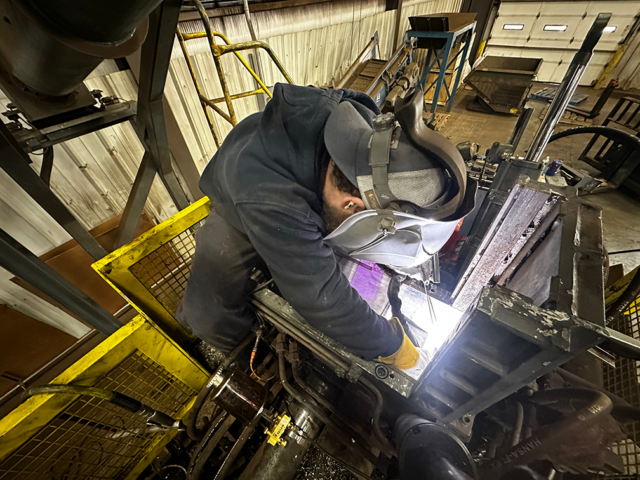
Difficult Work Pushes More Blacks into Early Retirement
Exposure to dangerous jobs and work environments over a prolonged period strain older workers’ bodies. The jobs may involve physical occupations like construction, working in cramped spaces or around hazardous chemicals, or stressful shift work.
A new study confirms that the disabling conditions that can result from these types of jobs help to explain why Black workers are more likely to retire early and sacrifice future income to preserve what’s left of their health.
The researchers were able to explore the impact of doing hazardous work over more than three decades thanks to a new survey that asks Americans over age 50 for detailed job histories. The people who were surveyed listed up to 10 jobs they’d held for at least a year. They described what they did after leaving each job and why they left or retired.
The Black workers who participated in this survey were more likely than the White workers to say poor health was a “very important reason to retire.” The Black workers also more often applied for Social Security’s disability benefits, which is an avenue they can pursue if they aren’t old enough to start their retirement benefits.
To identify which of their jobs were hazardous, the researchers linked the workers’ job histories to a national database that has detailed descriptions of the tasks required in each occupation. A basic finding here was that older Black workers more often work in dangerous or difficult conditions in the first place.
This type of work is often physically demanding and includes occupations that expose them to contaminants and diseases or require them to work in awkward or cramped positions, crouch, crawl or twist their bodies unnaturally or climb ladders and scaffolds.
In contrast to the Black workers in this study, older Whites, not surprisingly, were more often in office or supervisory jobs in which they had the freedom to make decisions, resolve conflicts and have face-to-face contact with their coworkers. Of course, White workers are not free of hazardous conditions either. They more often work in high places, such as a lineman for a utility company, or are exposed to radiation or whole-body vibrations when, for example, using a jackhammer.
But, overall, Black workers feel the brunt of the resulting disabilities that force them to leave the labor force early. In doing so, they can experience a drop in income immediately if they go on disability or later, in their retirement income, if they have to start their Social Security retirement benefits soon after turning 62.
Although the Black-White disparities are clear, the researchers found little difference between Hispanics’ and non-Hispanic Whites’ work environments or their decisions about retiring.
But among older Black workers who retire after developing a disabling condition, the study concludes, “work exposure accounts for a portion of the racial difference.”
To read this study by Amanda Sonnega, Qize Chen, Dawn Carr, Qiuchang Cao, and Rebekah Carpenter, see “Racial and Ethnic Differences in Lifetime Work Environment Exposure and Early Disability Retirement.”
The research reported herein was performed pursuant to a grant from the U.S. Social Security Administration (SSA) funded as part of the Retirement and Disability Research Consortium. The opinions and conclusions expressed are solely those of the authors and do not represent the opinions or policy of SSA or any agency of the Federal Government. Neither the United States Government nor any agency thereof, nor any of their employees, makes any warranty, express or implied, or assumes any legal liability or responsibility for the accuracy, completeness, or usefulness of the contents of this report. Reference herein to any specific commercial product, process or service by trade name, trademark, manufacturer, or otherwise does not necessarily constitute or imply endorsement, recommendation or favoring by the United States Government or any agency thereof.
Comments are closed.







Blacks experience racism as well in the workplace that may lead them to try and find a job that treats them well.